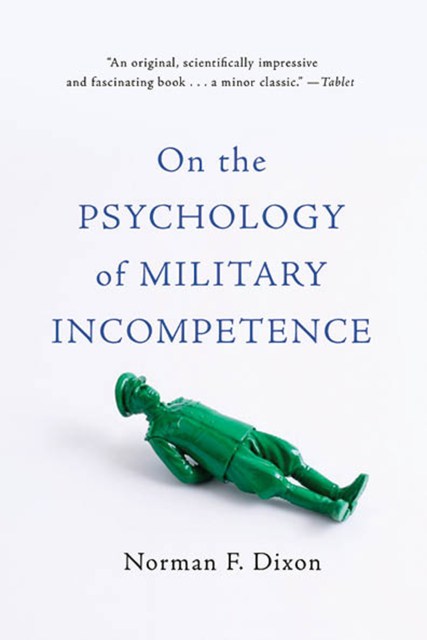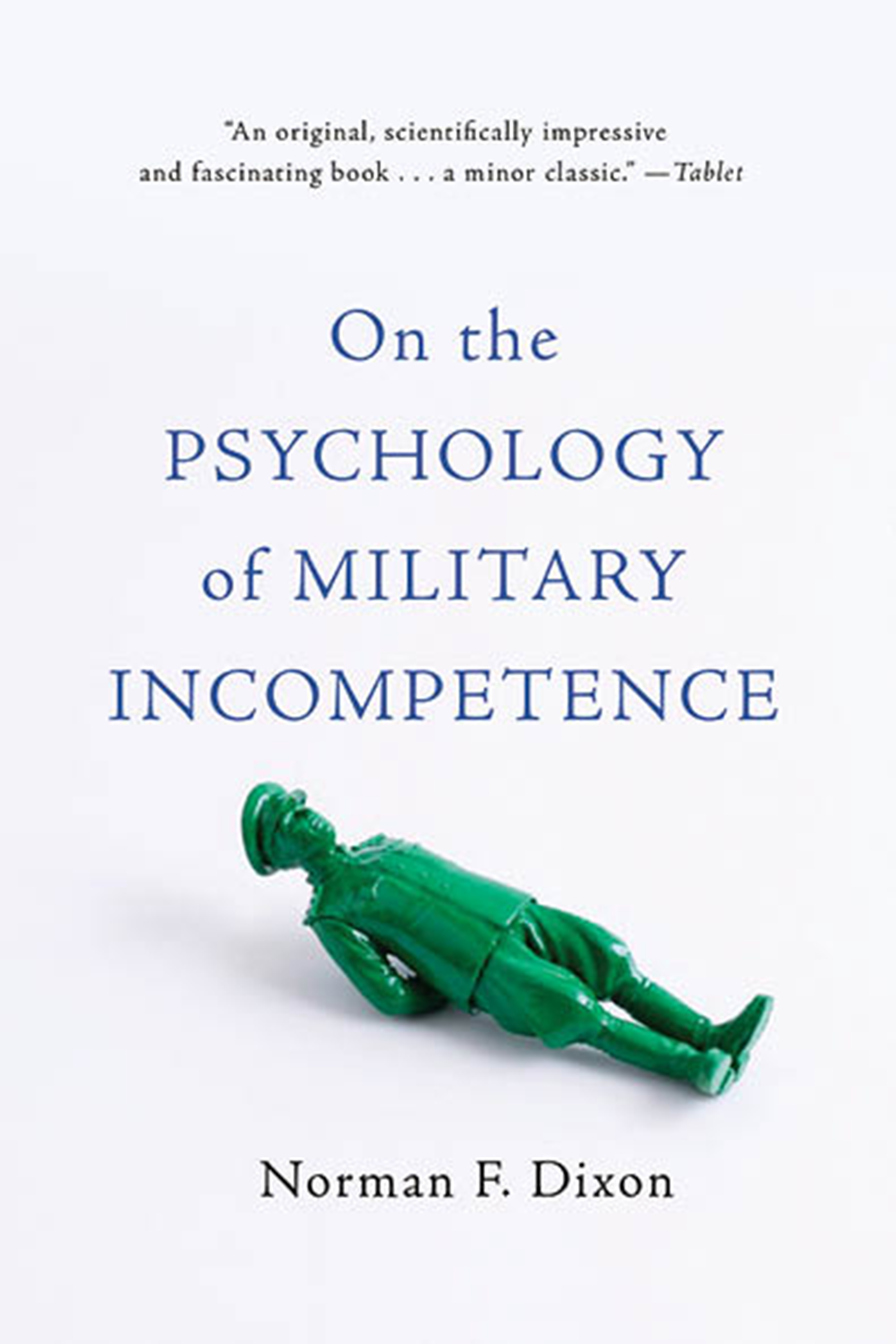Promotion
Use code CYBER2024 for 30% off sitewide + free shipping over $30
By clicking “Accept,” you agree to the use of cookies and similar technologies on your device as set forth in our Cookie Policy and our Privacy Policy. Please note that certain cookies are essential for this website to function properly and do not require user consent to be deployed.
On the Psychology of Military Incompetence
Contributors
Formats and Prices
Price
$15.99Format
Format:
This item is a preorder. Your payment method will be charged immediately, and the product is expected to ship on or around May 31, 2016. This date is subject to change due to shipping delays beyond our control.
Also available from:
The Crimea, the Boer War, the Somme, Tobruk, Pearl Harbor, the Bay of Pigs: these are just some of the milestones in a century of military incompetence, of costly mishaps and tragic blunders. Are these simple accidents—as the "bloody fool" theory has it—or are they inevitable?
The psychologist Norman F. Dixon argues that there is a pattern to inept generalship, and he locates this pattern within the very act of creating armies in the first place, which in his view produces a levelling down of human capability that encourages the mediocre and limits the gifted. In this light, successful generals achieve what they do despite the stultifying features of the organization to which they belong.
On the Psychology of Military Incompetence is at once an original exploration of the battles that have defined the last two centuries of human civilization and an essential guide for the next generation of military leaders.
Genre:
- On Sale
- May 31, 2016
- Page Count
- 528 pages
- Publisher
- Basic Books
- ISBN-13
- 9780465097814
Newsletter Signup
By clicking ‘Sign Up,’ I acknowledge that I have read and agree to Hachette Book Group’s Privacy Policy and Terms of Use







